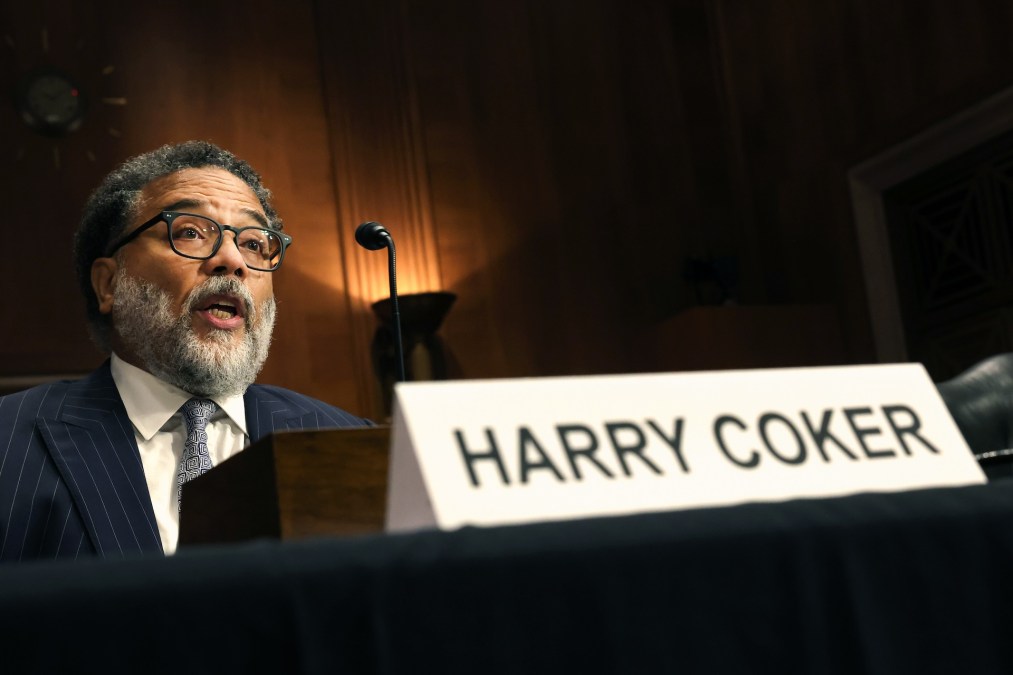Harry Coker confirmed to be the next National Cyber Director

Harry Coker is the nation’s newest national cyber director, following a Senate confirmation vote Tuesday.
Coker will soon take on the role as the next “coach” to oversee and coordinate cybersecurity policy across the federal government. The Senate passed his nomination by a 59-40 vote. Coker, most recently the executive director at the National Security Agency, continues the trend of NSA alums serving as the nation’s top cybersecurity official.
The Office of the National Cyber Director has gone without a Senate-confirmed director for 10 months following the resignation of the inaugural director Chris Inglis in late February. Kemba Walden took the mantle as acting director until November, when Drenan Dudley assumed the role during the transition.
Coker spent 17 years at the CIA in various leadership positions, including the directorate of digital innovation, directorate of science and technology, and the director’s area, according to a bio at Auburn University’s McCrary Institute for Cyber and Critical Infrastructure Security, where he is also a senior fellow.
During his nomination testimony, Coker expressed his appreciation for the existing work ONCD has laid out in its strategy, implementation plan and national cyber workforce and education strategy. Coker told the Senate Homeland Security and Governmental Affairs Committee that he would, “frankly, continue the good work that ONCD has done with its partners.”
That work includes a long to-do list for Coker right off the bat. The ONCD released an implementation guide that serves as the North star for U.S. cybersecurity policy and includes more than 65 initiatives to carry out the national cybersecurity strategy. The breadth of topics covers everything from critical infrastructure regulations to cyber diplomacy to workforce issues, and is considered a “living document” that is expected to be updated next year.
Coker is also stepping into a crowded ring amid reports of friction among the top echelon of cybersecurity officials. Inglis reportedly left the office shortly before the national cyber strategy was released due to the tense relationship and seemingly overlapping authorities with Anne Neuberger, the deputy national security adviser for cyber and emerging technology, who has has the more direct line to the Oval Office, and Jen Easterly, director of the Cybersecurity and Infrastructure Security Agency, which is more of an operational role.
The NCD position was first recommended by the congressionally mandated Cyberspace Solarium Commission to lead the nation’s cybersecurity policy as cybersecurity crosses multiple domains and agencies.
While Coker did receive approval from cyber-focused lawmakers, Walden was thought by many to be the natural replacement for Inglis. However, the administration decided not to nominate Walden because of her personal debt, according to reports from the Washington Post, a motive that many experts doubted.





